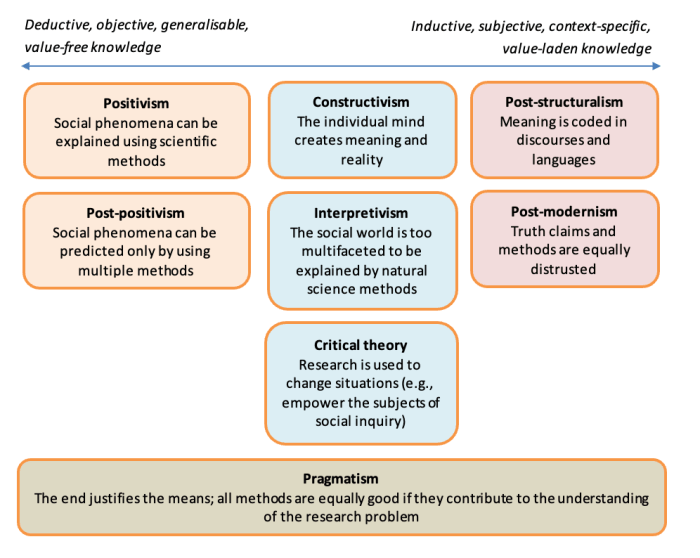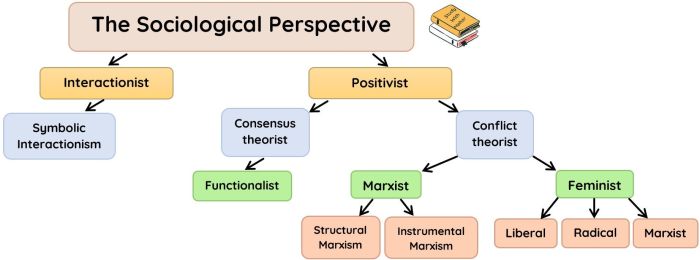Match each theoretical perspective to the corresponding approach to outsourcing – In the realm of business strategy, outsourcing has emerged as a pivotal decision for organizations seeking to optimize operations and leverage external expertise. To navigate this complex landscape, a comprehensive understanding of the theoretical perspectives that guide outsourcing approaches is essential.
This discourse delves into five prominent theories—Transaction Cost Theory, Resource-Based View, Institutional Theory, Contingency Theory, and Agency Theory—and explores their implications for outsourcing strategies.
Transaction Cost Theory

Transaction cost theory suggests that firms outsource activities when the costs of transacting with external suppliers are lower than the costs of performing the activities internally. Transaction costs include the costs of searching for and negotiating with suppliers, monitoring their performance, and enforcing contracts.
Outsourcing can reduce transaction costs by allowing firms to take advantage of specialized suppliers who have lower production costs or greater expertise. For example, a manufacturing firm may outsource the production of a component to a supplier that specializes in producing that component.
This can reduce the firm’s transaction costs because it does not have to invest in the equipment and expertise needed to produce the component itself.
Advantages of Using Transaction Cost Theory to Analyze Outsourcing
- Provides a clear framework for analyzing outsourcing decisions
- Can help firms identify activities that are most suitable for outsourcing
- Can help firms avoid the pitfalls of outsourcing
Disadvantages of Using Transaction Cost Theory to Analyze Outsourcing
- Can be difficult to apply in practice
- May not be able to account for all of the factors that influence outsourcing decisions
- Can lead to firms outsourcing too many activities
- Can be difficult to identify a firm’s core competencies
- May not be able to account for all of the factors that influence outsourcing decisions
- Can lead to firms outsourcing too many activities
- The rise of global outsourcing in the 1990s was partly due to the liberalization of trade policies and the development of new technologies that made it easier to communicate and collaborate with suppliers in other countries.
- The increasing popularity of cloud computing in recent years is partly due to the growing acceptance of the idea that data and applications can be stored and accessed securely online.
- The best outsourcing strategy for a particular firm will depend on a number of factors, including the firm’s size, industry, and competitive environment.
- There is no one-size-fits-all approach to outsourcing.
- Firms should carefully consider the costs and benefits of outsourcing before making a decision.
- Carefully select suppliers
- Negotiate clear and concise contracts
- Monitor supplier performance closely
- Establish performance-based incentives
Resource-Based View
The resource-based view suggests that firms should outsource activities that do not contribute to their core competencies. Core competencies are the unique strengths and capabilities that give a firm a competitive advantage. By outsourcing non-core activities, firms can focus on developing and leveraging their core competencies.
Outsourcing can also help firms acquire or develop valuable resources. For example, a firm may outsource the development of a new technology to a supplier that has expertise in that area. This can help the firm to gain access to new technologies and capabilities that it would not be able to develop on its own.
Limitations of Using the Resource-Based View to Evaluate Outsourcing Decisions, Match each theoretical perspective to the corresponding approach to outsourcing
Institutional Theory: Match Each Theoretical Perspective To The Corresponding Approach To Outsourcing
Institutional theory suggests that firms are influenced by the institutions in their environment. Institutions are the rules, norms, and values that govern behavior in a society. Institutional theory can be used to understand why firms outsource certain activities and not others.
For example, a firm may outsource an activity if it is required by law or if it is considered to be the norm in the industry. Institutional pressures can also influence the way that firms structure their outsourcing relationships. For example, a firm may be more likely to outsource an activity to a supplier that is located in the same country or that has a similar culture.
Examples of How Institutional Factors Have Shaped Outsourcing Practices
Contingency Theory

Contingency theory suggests that there is no one-size-fits-all approach to outsourcing. The best outsourcing strategy for a particular firm will depend on a number of factors, including the firm’s size, industry, and competitive environment.
Contingency theory can be used to develop a framework for analyzing outsourcing decisions. This framework can help firms to identify the factors that are most likely to influence their outsourcing decisions and to make more informed decisions about which activities to outsource.
Key Principles of Contingency Theory as They Relate to Outsourcing
Agency Theory

Agency theory suggests that outsourcing can create agency problems. Agency problems occur when one party (the principal) delegates authority to another party (the agent) and the agent does not act in the best interests of the principal.
In the context of outsourcing, agency problems can occur when the supplier does not perform the outsourced activity in accordance with the terms of the contract. For example, the supplier may cut corners to save money or may use inferior materials.
This can lead to the firm losing money or damaging its reputation.
Strategies for Mitigating Agency Problems in Outsourcing
FAQ Overview
What are the key advantages of outsourcing?
Outsourcing offers several benefits, including cost reduction, access to specialized expertise, improved efficiency, and increased flexibility.
What are the potential risks associated with outsourcing?
Outsourcing can pose risks such as loss of control, intellectual property theft, and potential quality issues.
How can organizations mitigate the risks of outsourcing?
Organizations can mitigate outsourcing risks through careful vendor selection, clear contracts, effective communication, and ongoing monitoring.